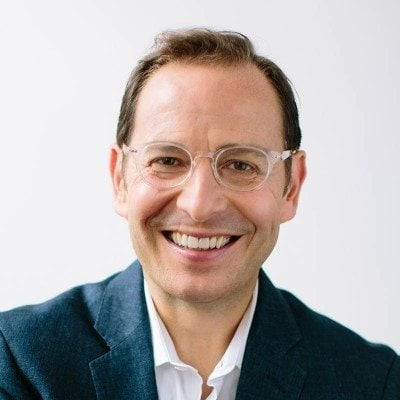This past weekend, I marched with AJWS staff and supporters in New York City’s Pride Parade. It felt especially poignant to march together in the wake of the Orlando shooting; to show that love will triumph over hate.
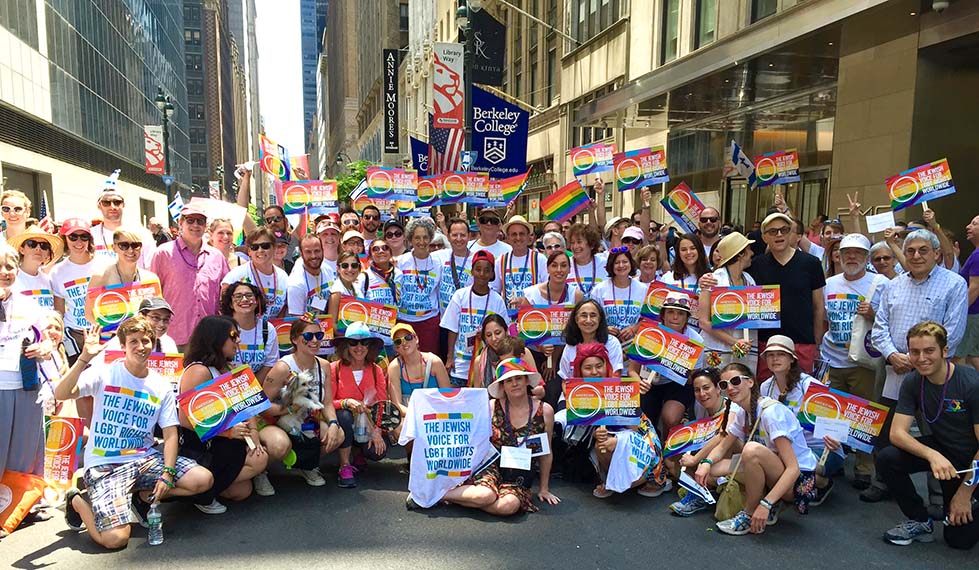
As we marched through showers of glitter, colorful floats, and crowds of people cheering, I thought of fellow activists around the world who are risking their own lives for the dignity of LGBT people. Some of these activists are LGBT people themselves. Others are not.
I thought of Essy, a lesbian woman in Kenya who works with ministers, imams and police officers to ensure LGBT Kenyans are treated with respect.
I thought of Nicholas, a straight lawyer in Uganda, who persuaded his country’s highest court to declare the draconian Anti-Homosexuality Law unconstitutional.
And I thought of Dayanara, a Nicaraguan trans woman, who overcame a life of hardship and is now organizing other trans women to fight for their right to healthcare, safety, housing and much more.
Together, these activists and I share a vision for an LGBT movement that does not exist in isolation, but is part of the global movement to advance human rights for all. We believe that the liberation of one community is bound up in the liberation of others.
As a South African gay Jew, I have learned this lesson well. I grew up in a liberal Jewish family in South Africa that believed Jews had a stake in battling the racist oppression that dominated our homeland. So deep was this belief that one of my relatives languished for many years in a South African jail for supporting this iconic human rights struggle. My political and moral DNA is rooted in this family legacy. It is impossible for me to separate myself from the struggles of others.
As a teenager and then a young man in the 1970s, I became aware of my capacity to love other men, which was vilified in South Africa at the time, even within its liberal Jewish community.
I came out only after I moved to New York in the early 1980s—the start of the AIDS crisis—where I found a more visible and vocal LGBT community thriving just 12 years after the Stonewall riots. People with AIDS were maligned, including my first partner, Eddie, a gifted musician, who died much too young.
As I became a leader of GMHC, the largest agency fighting AIDS in the world, the face of the epidemic changed. I discovered that AIDS affected not only gay men, but women of color, injection drug users, hemophiliacs and others. The human rights of these communities were inseparable. It was not enough for me to advocate for one population’s right to health care and safe housing. I needed to advocate for everyone’s.
At a time in human history that feels increasingly divisive, I am inspired by the interconnectedness among people who experience different kinds of oppressions.
Just last month, a Honduran gay man named Alejandro joined with Honduran indigenous and environmental activists in Washington, D.C. to address U.S. policymakers about the deteriorating human rights crisis in their country.
This meeting came on the heels of the recent assassination of Berta Caceres, an environmental activist who had devoted her life to advocating for the rights of the indigenous Lenca communities to live on their ancestral land.
I was moved that Alejandro, who serves as the president of an LGBT organization, echoed his peers’ call to suspend U.S. aid to Honduras until the Honduran government puts an end to senseless violence. Alejandro clearly understands that the fate of LGBT activists is no different from the fate of Berta Caceres and others who are fighting for the rights of people whose lives are at stake.
I am deeply gratified to work as a Jew in solidarity with people like Alejandro, who are fighting for the rights of ethnic and religious minorities, women and girls, indigenous people and LGBT communities.
From the horrors of apartheid South Africa, to the struggle against AIDS in New York City, to the assassinations of contemporary human rights activists, I have seen the worst of what people can do to one another. But I continue to be inspired by those who share a vision that each of us, no matter who we are or whom we love, deserves basic human dignity and human rights.
The LGBT community, like every community, has its own particularities that should be celebrated. But we must widen our panorama to build a future in which human dignity is a shared pursuit for all. When we seize that challenge, I know a better world is possible.
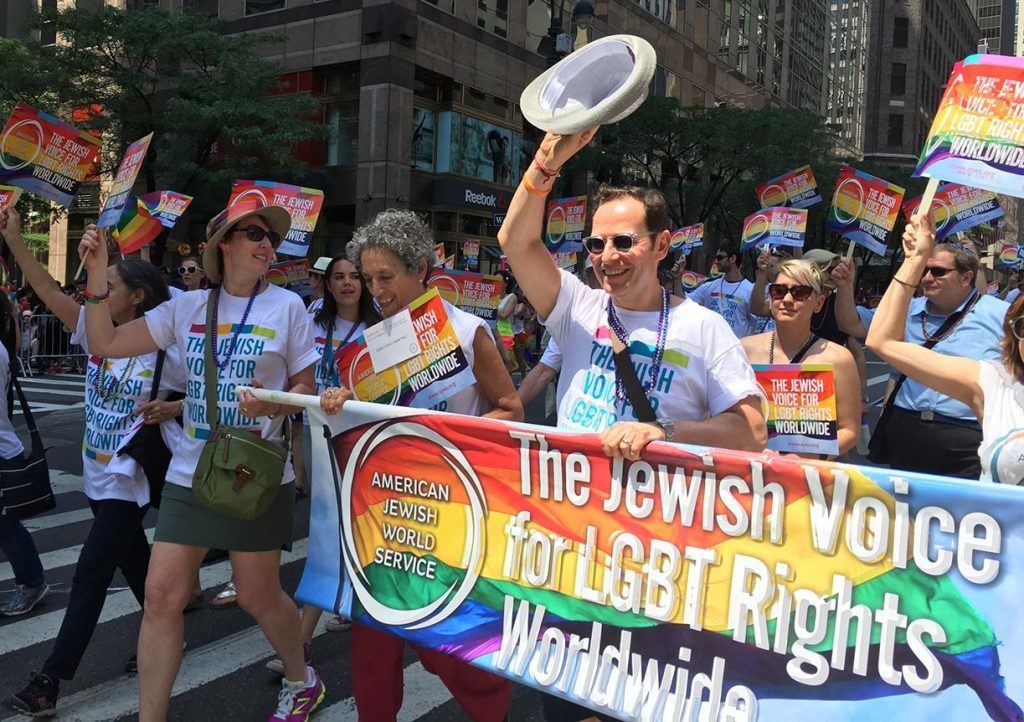
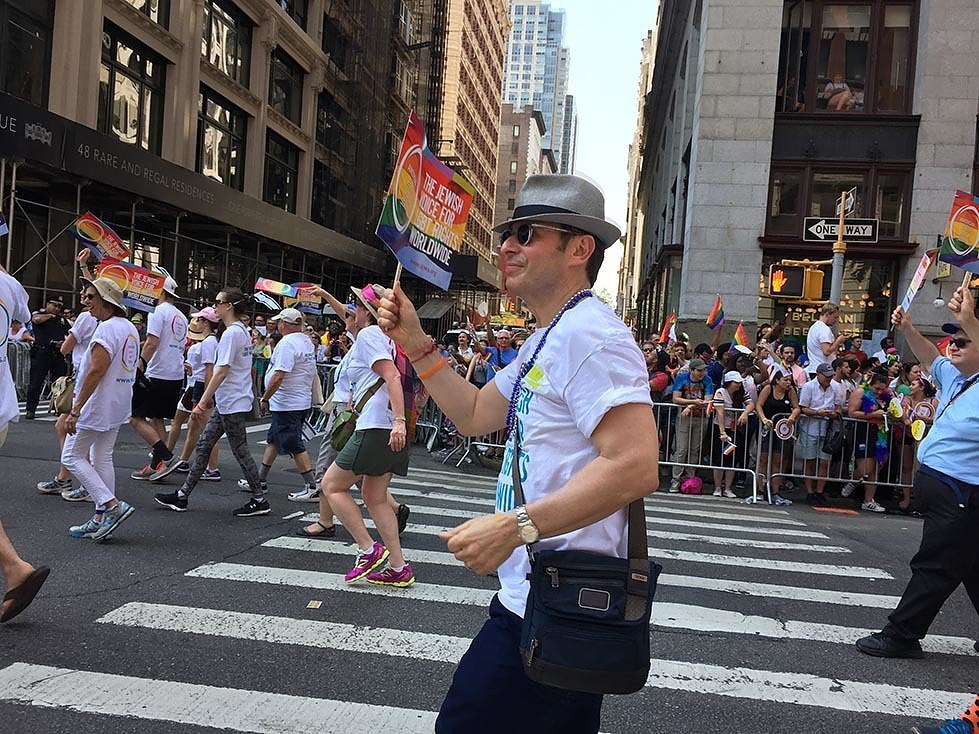
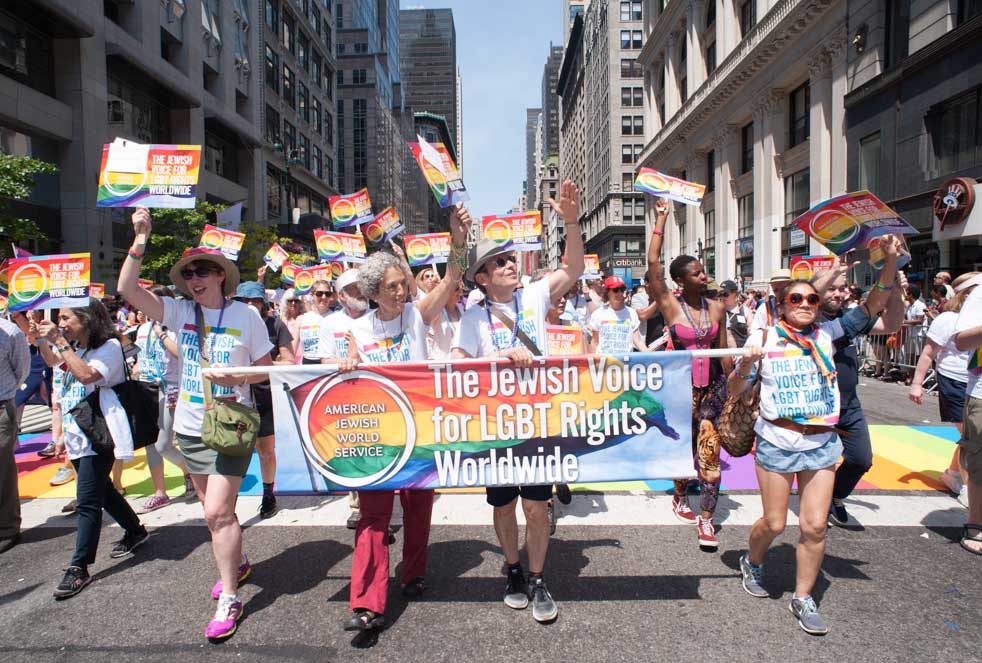
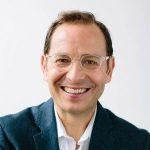 Robert Bank, currently the executive vice president of American Jewish World Service (AJWS), will be the next president of AJWS, starting on July 1, 2016.
Robert Bank, currently the executive vice president of American Jewish World Service (AJWS), will be the next president of AJWS, starting on July 1, 2016.

